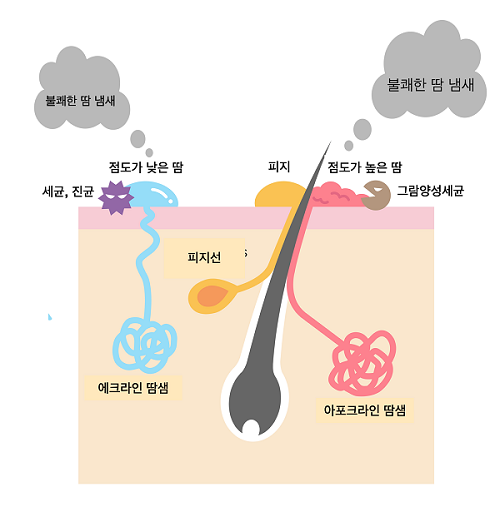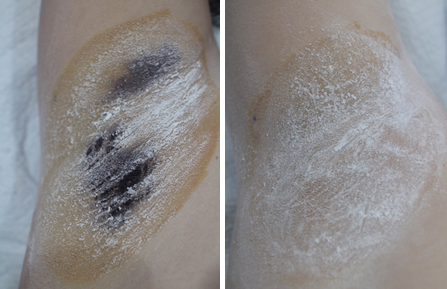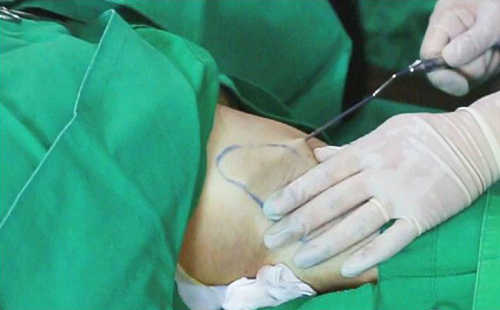
Sweat is a natural physiological response to maintaining body temperature. Bromhidrosis is a disease that suffers not only the person but also others with a poisonous odor and sweat. Bromhidrosis causes unpleasant, excessive odor and colorizes clothes, causing considerable disruption to social life. Therefore, through a discussion with Chang-Hun Huh, a dermatologist at Seoul National University Bundang Hospital, and Hyun-Jo Kim, a dermatologist (Director of CNP Cha & Park Dermatology Cheonan Buldang Branch), I took a closer look at this disease.

Reporter Jung-Sun Han: What is the cause of bromidrosis?
Professor Chang-Hun Hun: Sweat glands are classified mainly as eccrine and apocrine glands. And bromhidrosis is caused by apocrine sweat glands that emit a solid foul odor. After puberty, hormonal action becomes active, and sweat, including fat, is secreted. It generates an offensive odor called armpit odor due to apocrine sweat glands. While apocrine sweat itself has an odor, fatty acids are formed in the process of bacterial decomposition, creating a more offensive odor. In particular, the armpits provide an excellent environment for bacterial growth because they have a lot of apocrine sweat glands, and the skin is always sweaty due to the folded skin. It is more alarming in the summer or after exercise when people sweat a lot. Moreover, for women, symptoms may deteriorate during menstruation or pregnancy.
Reporter Hung-Sung Han: Is bromhidrosis a hereditary disease?
Hyun-Jo Kim, Specialist: The family history of bronchitis is 75-85%, showing a dominant genetic pattern. Bromhidrosis occurs in 50% of children when only one parent has it and 70-80% of children when both parents have it. The symptoms of bromhidrosis occur after puberty when the secretion of sex hormones is active. According to a study, the onset of bromhidrosis was earlier in women: It commonly occurs at 17.8 years old for men and 15.1 years old for women. Self-diagnosis is possible; one may check if there is a displeasing and foul odor by directly smelling the under-armpit, gauze, or tissue after wiping the armpit. In addition, since many patients with bronchitis are closely related to wet earwax, it is also practical to check whether the earwax is damp.
Reporter Jung-Sun Han: When is the proper treatment time for bromhidrosis?
Professor Chang-Hun Huh: Bromhidrosis can significantly impact the quality of life, causing Anxiety, Low self-esteem, and Social withdrawal because of the rancid odor. In extreme cases, patients can develop a social phobia. The problem with bromhidrosis is that it limits social life rather than the smell itself. Especially during a sensitive period such as puberty, there is a high possibility of being bullied, so treating it as soon as possible after the onset is more acceptable.

Reporter Jung-Sun Han: What is the treatment for bromhidrosis?
Hyun-Jo Kim, Specialist : Because the apocrine sweat glands of bromhidrosis patients are larger and more numerous than those of ordinary people, surgical removal of the apocrine sweat glands in the subcutaneous fat layer is a fundamental treatment. Other non-surgical treatments include local drug therapy, botulinum toxin injection, ion osmosis therapy, and electric hair removal. However, surgical treatment is recommended for patients with severe symptoms since the therapeutic effect is temporary and recurrence is frequent.
Reporter Jung-Sun Han: Please explain more about the surgery and precautions after surgery.
Professor Chang-Hun Huh: Recently, many effective measures have been used, such as ultrasound suction which selectively destroys the apocrine sweat glands, electrocautery, which uses insulating needles, and laser therapy, which has a short surgical time and minimizes scarring. After surgery, a compression bandage should be worn to compress the surgical site. It is recommended not to do vigorous exercise or excessive shoulder movement for 1 to 2 weeks. In addition, diabetic patients need to inform the medical staff before surgery as wound healing may be delayed after surgery. And pregnant women are advised to try general measures such as adjusting their daily lifestyle and then specific measures after childbirth.

Reporter Jung-Sun Han: Does health insurance cover the treatment of bromhidrosis?
Hyun-Jo Kim Specialist: Health insurance covers surgical resection to treat bromhidrosis. However, it does not cover liposuction procedures with a relatively low possibility of side effects, which has been recently more used. Reporter Jung-Sun Han: Is there a case where the bronchial odor gets better on its own? Also, do lifestyle habits help reduce odor?
Hyun-Jo Kim Specialist: Good underarm hygiene is sound.
Washing your armpits frequently, removing sweaty clothes to keep your skin dry, using antibacterial soap and deodorant, and wearing cotton underwear that absorbs sweat can temporarily relieve symptoms.


